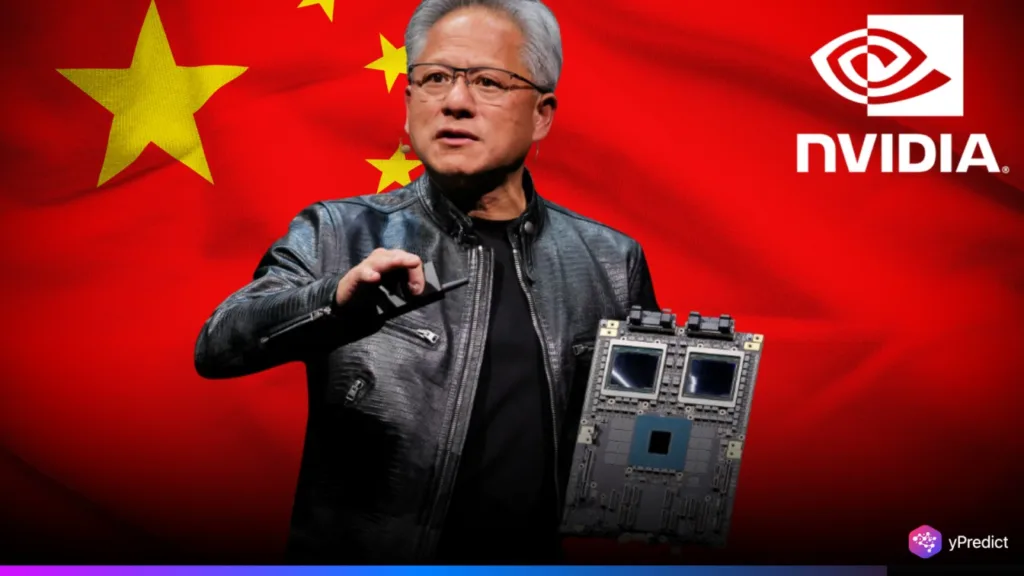
Nvidia plans to launch a non-Hopper AI chip, particularly for China, signaling a significant shift in its global strategy. Nvidia CEO Jensen Huang said on Friday that the company’s next-generation artificial intelligence (AI) processor for China will not be based on the Hopper series, indicating a significant shift in Nvidia’s China strategy following tougher US export restrictions.
Instead of modifying existing architectures like the H20 or H100, Nvidia will design a completely new chip that complies with regulatory requirements. This move underscores both the company’s response to geopolitical pressure and its commitment to preserving its foothold in China, the world’s second-largest economy.
Nvidia Shifts Strategy with Non-Hopper AI Chip
Reuters reported that Nvidia is reevaluating its position in the Chinese market as the US government tightens export restrictions, requiring licenses for the sale of its Hopper H20 processors. While the company has previously attempted to alter the Hopper series to conform to changing rules, Huang indicated that additional changes to the H20 architecture are no longer possible due to technological and regulatory constraints.
Despite emphasizing China’s strategic value, Huang said Nvidia is exploring new ways to comply without depending on the Hopper platform. The H20 chip, a reduced version of the H100 designed for compliance, remains Nvidia’s only approved AI processor in China. However, shipment delays and licensing issues have restricted H20 availability, pushing Nvidia to pursue alternative solutions for the Chinese market.
According to sources familiar with the situation, Nvidia intends to release a downgraded version of its H20 chip for China, replacing high-bandwidth memory (HBM) with GDDR7 to comply with US export regulations.
Nvidia is simultaneously developing a China-specific chip using its upcoming Blackwell architecture and GDDR7 to meet compliance requirements. Since the H20 cannot be upgraded or reused, a spokesperson confirmed Nvidia is exploring limited options to stay competitive in China.
China Remains Crucial for Nvidia
China remains a crucial market for Nvidia, contributing $17 billion, which amounts to about 13% of total revenue for fiscal year 2025. However, rising geopolitical restrictions and growing competition from local firms like Huawei have reduced China’s financial impact on Nvidia’s business. Huawei continues accelerating AI chip development, responding to ongoing U.S. sanctions and challenging Nvidia’s dominance in China’s expanding AI sector.
At the Milken Conference, Huang projected China’s AI chip market could reach $50 billion within a few years. Meanwhile, the U.S. issued a fresh warning, stating that using Huawei’s AI chips anywhere could violate export rules.
Amid rising tensions, reports suggest that Nvidia plans to open an R&D center in Shanghai to better align with local needs and navigate regulatory challenges. An Nvidia spokesperson told Nikkei Asia that
Chinese firms like Huawei, shielded from U.S. competition, are now using that edge to expand globally.
Conclusion
Nvidia’s choice to build a China-specific AI chip reflects its flexible strategy amid intensifying U.S.-China technology and trade tensions. As geopolitical forces reshape global semiconductor markets, Nvidia navigates complex regulations to maintain access while adhering to evolving U.S. export policies.
This move highlights the growing fragmentation of global digital ecosystems and signals a future shaped by regional political and regulatory realities. Innovation will increasingly adapt to local constraints, reflecting how geopolitics influences technological design, deployment, and market-specific product development strategies.






